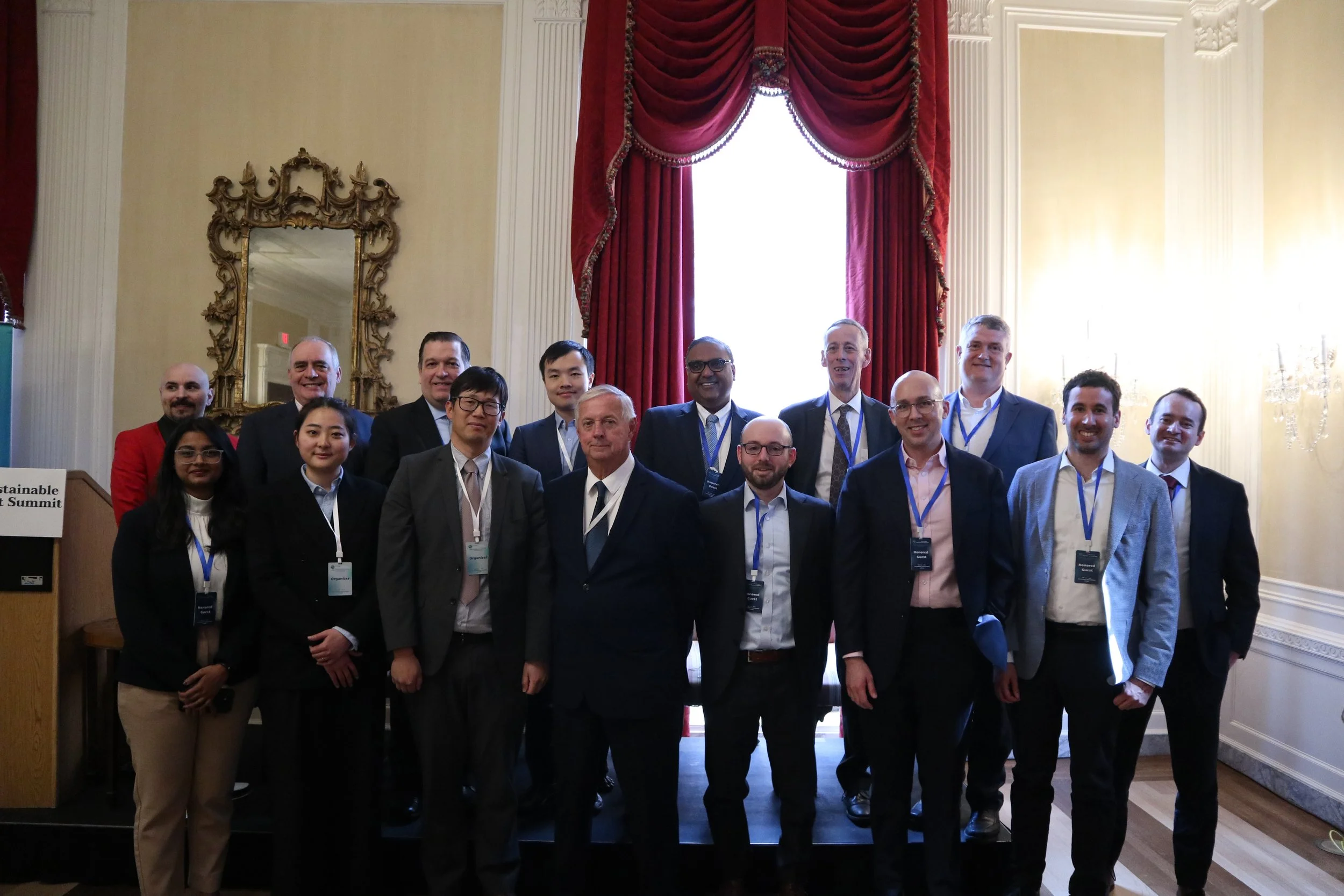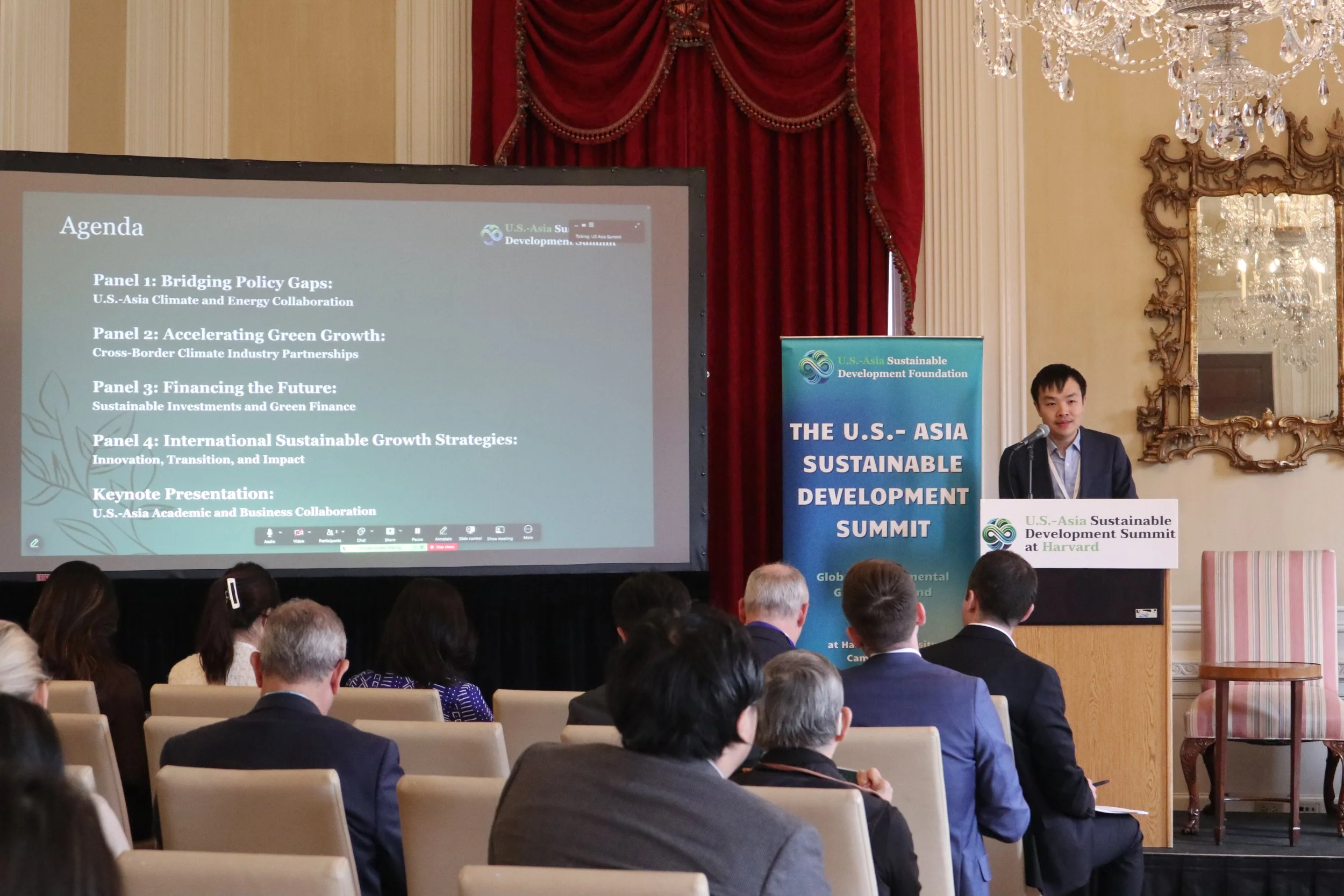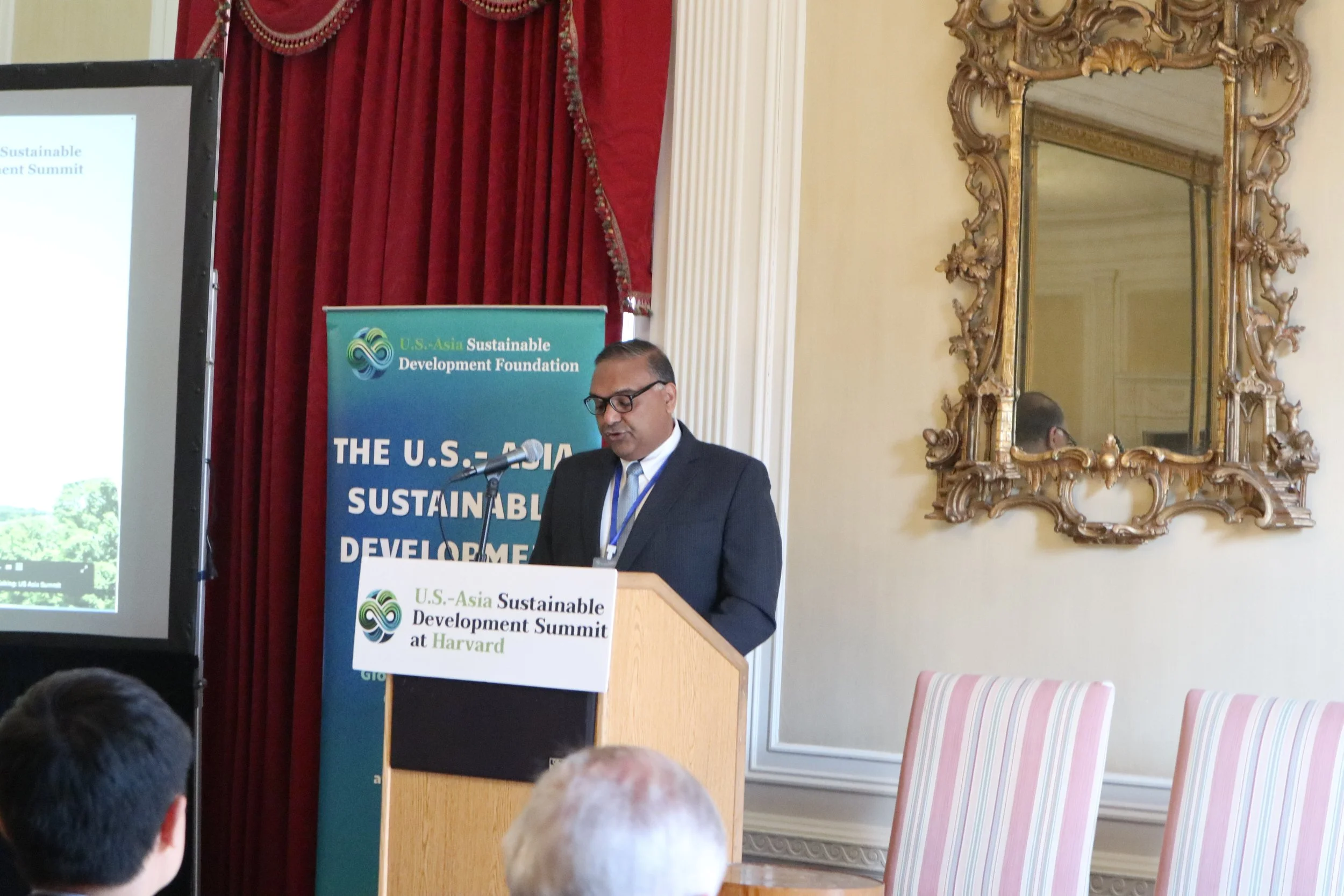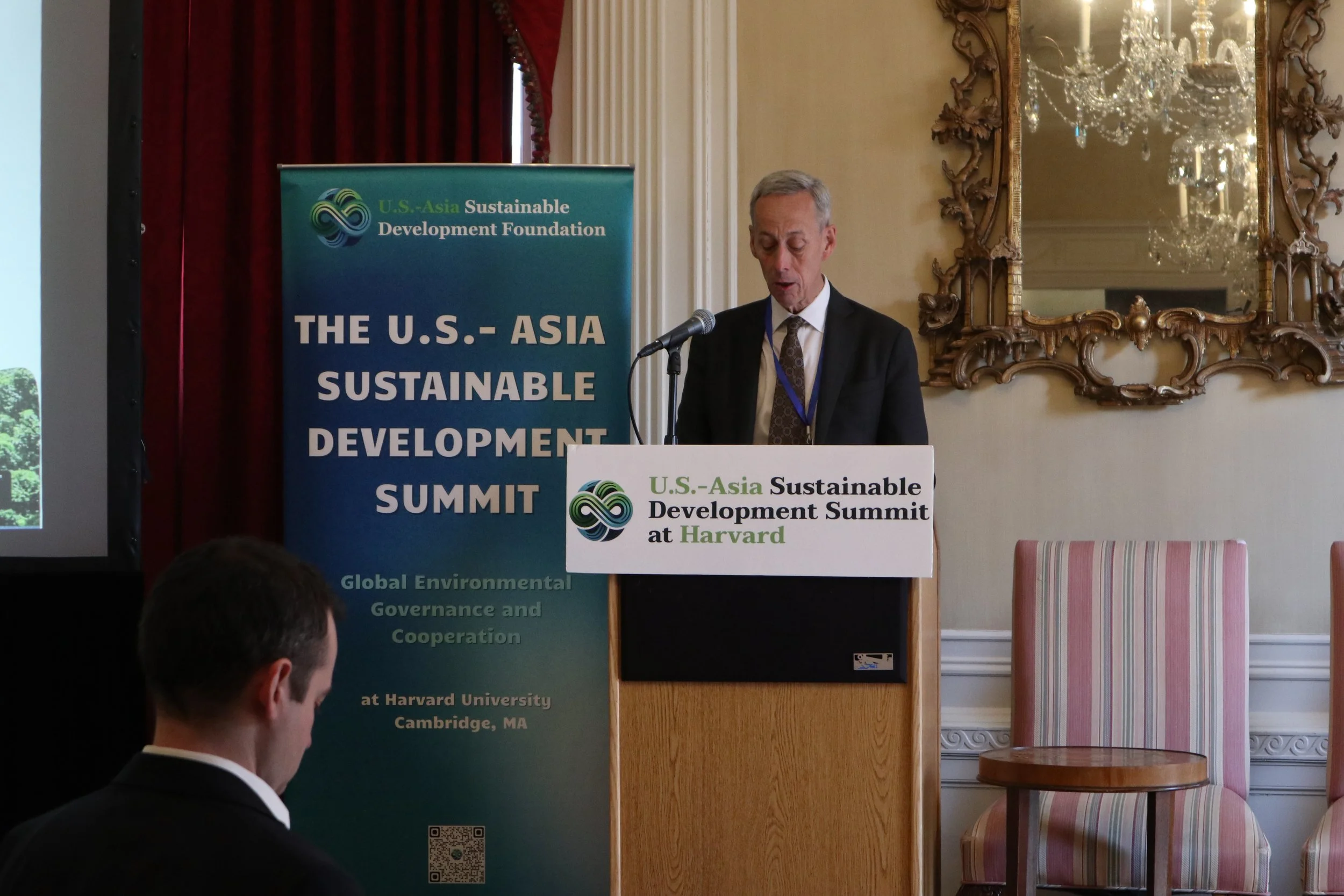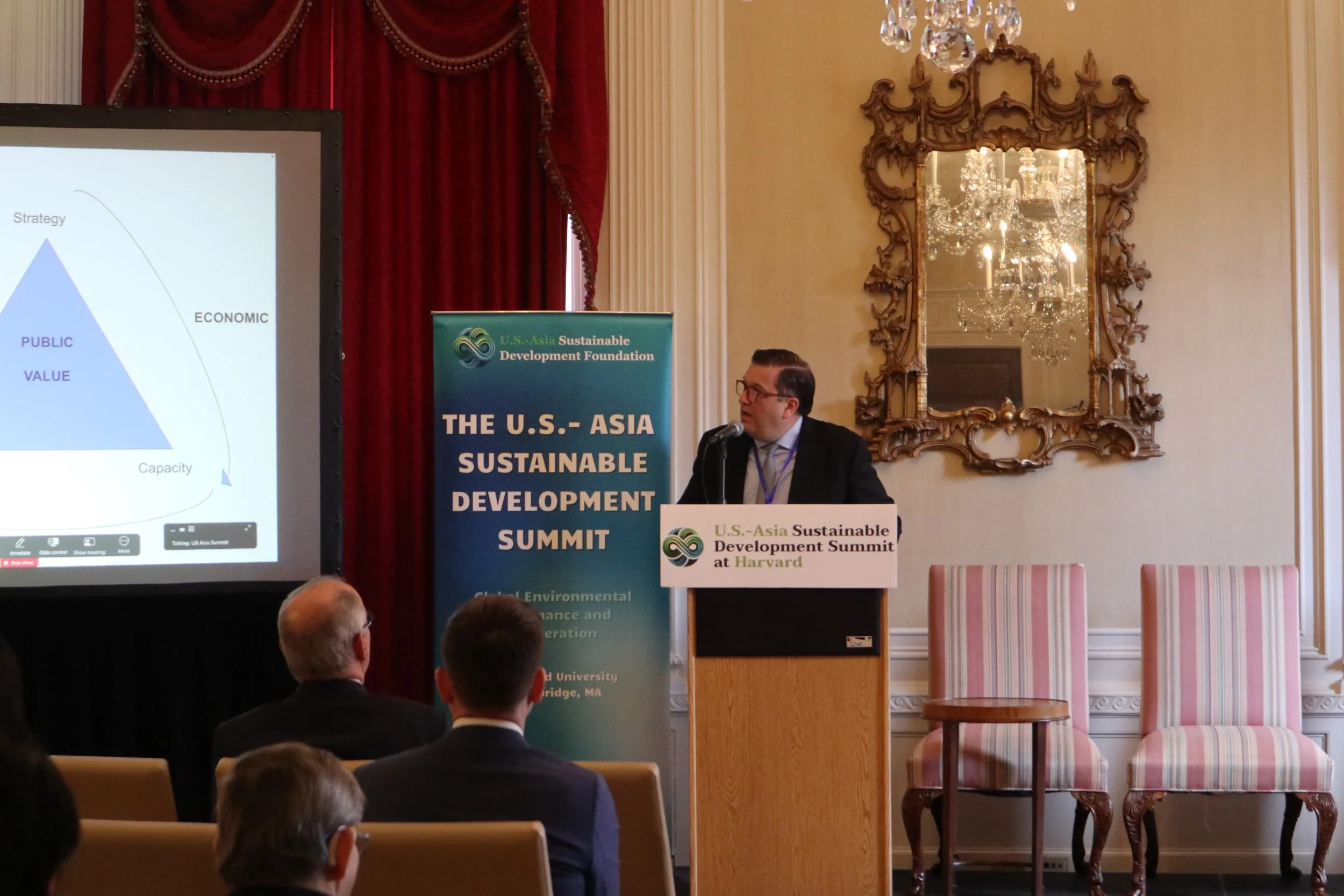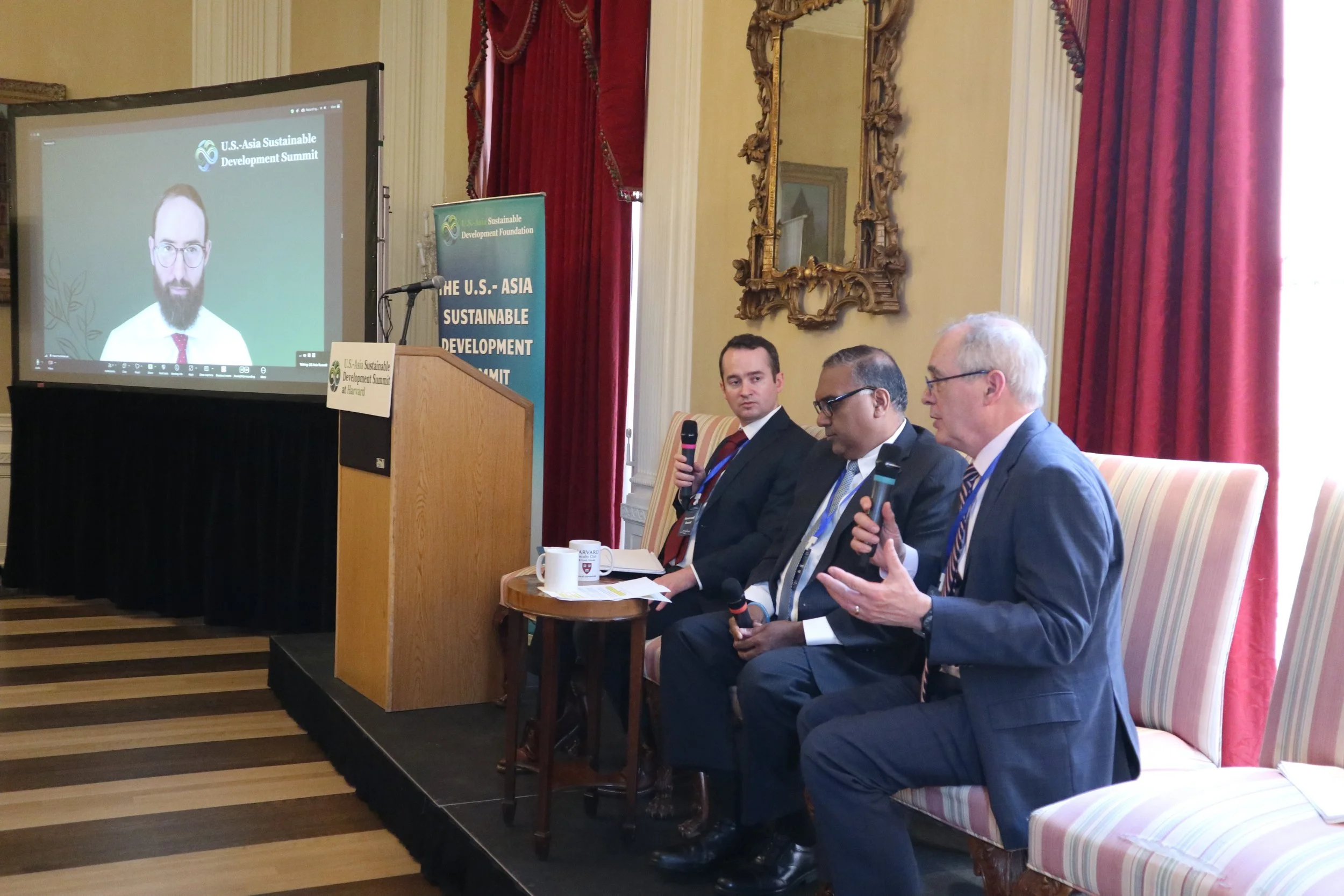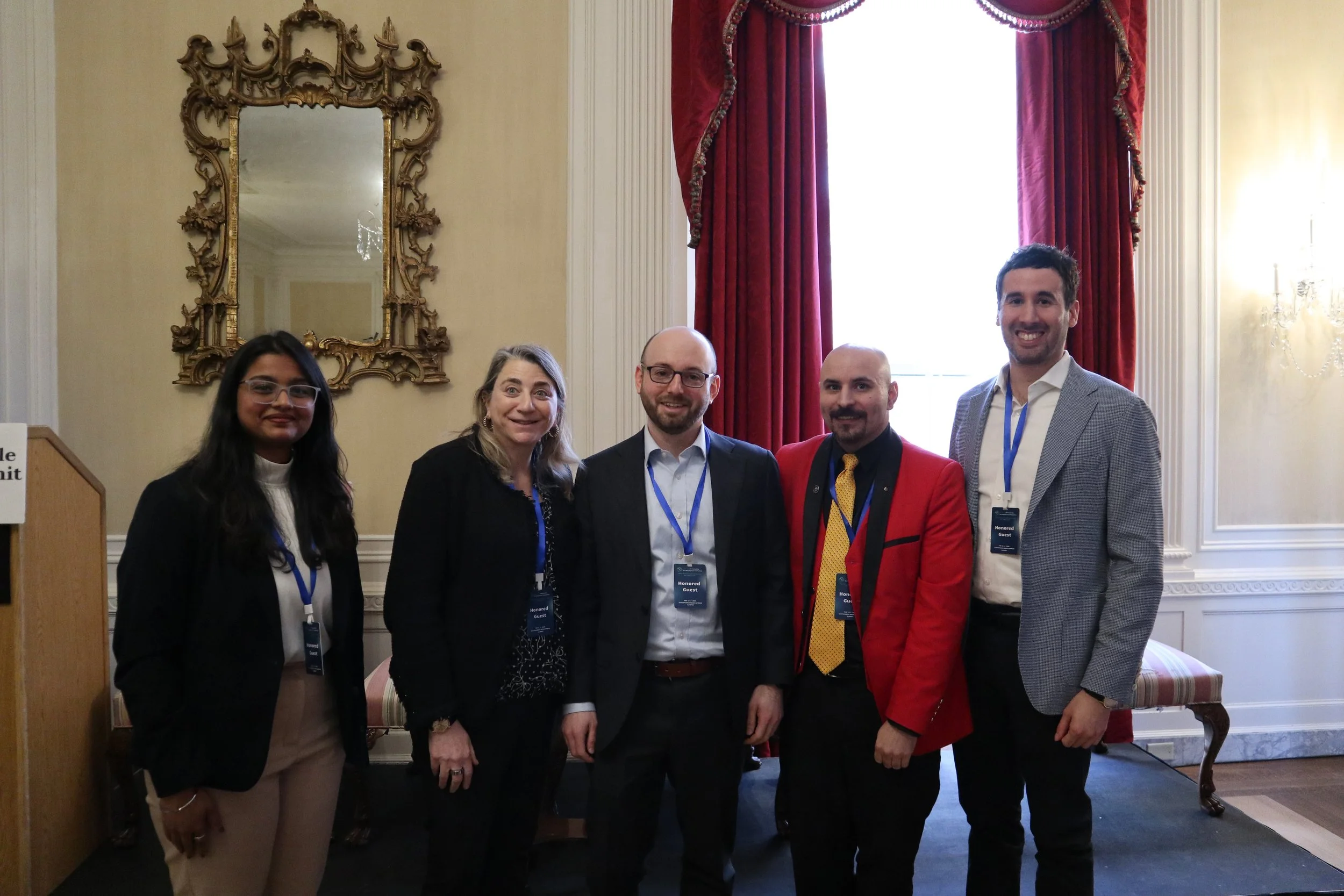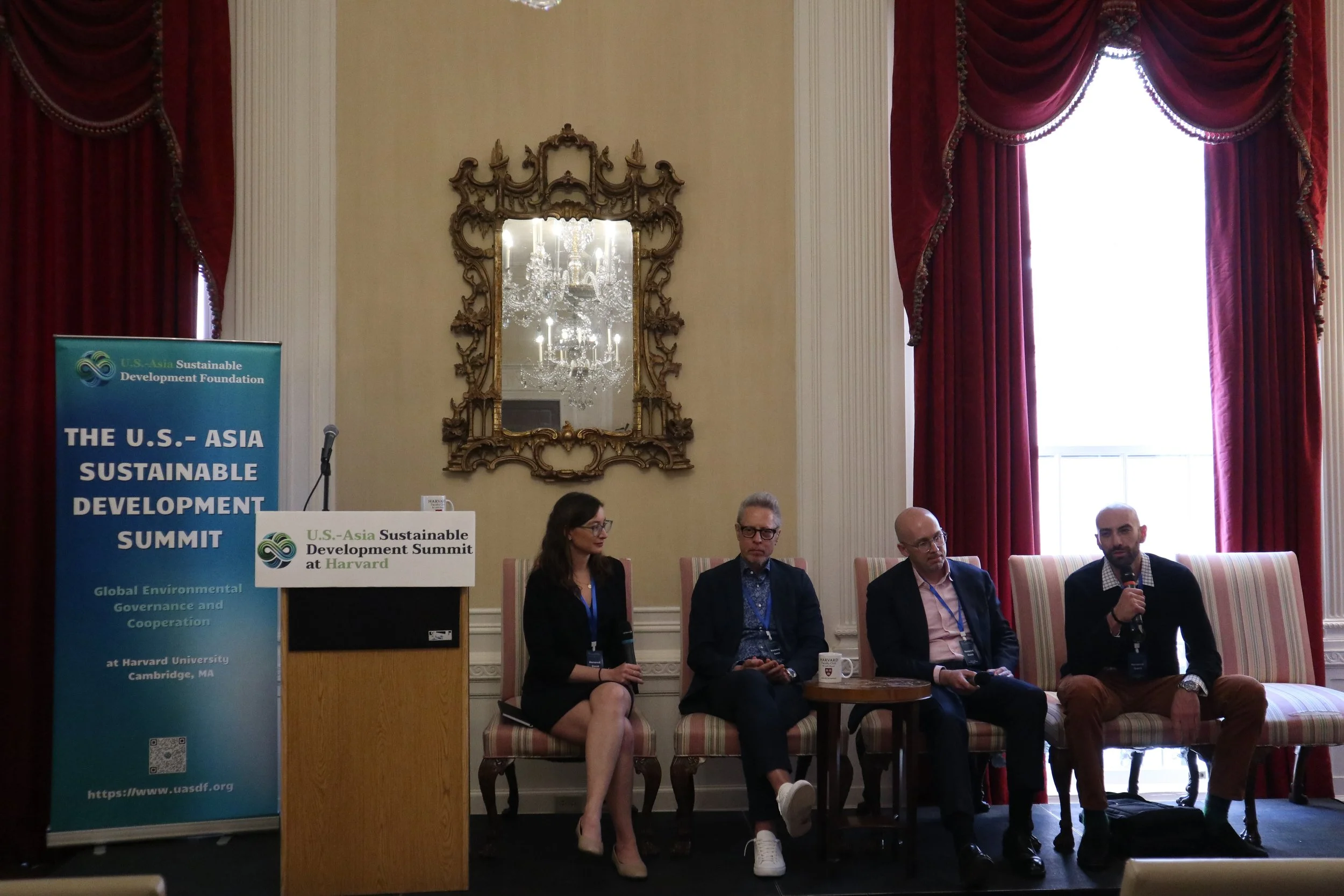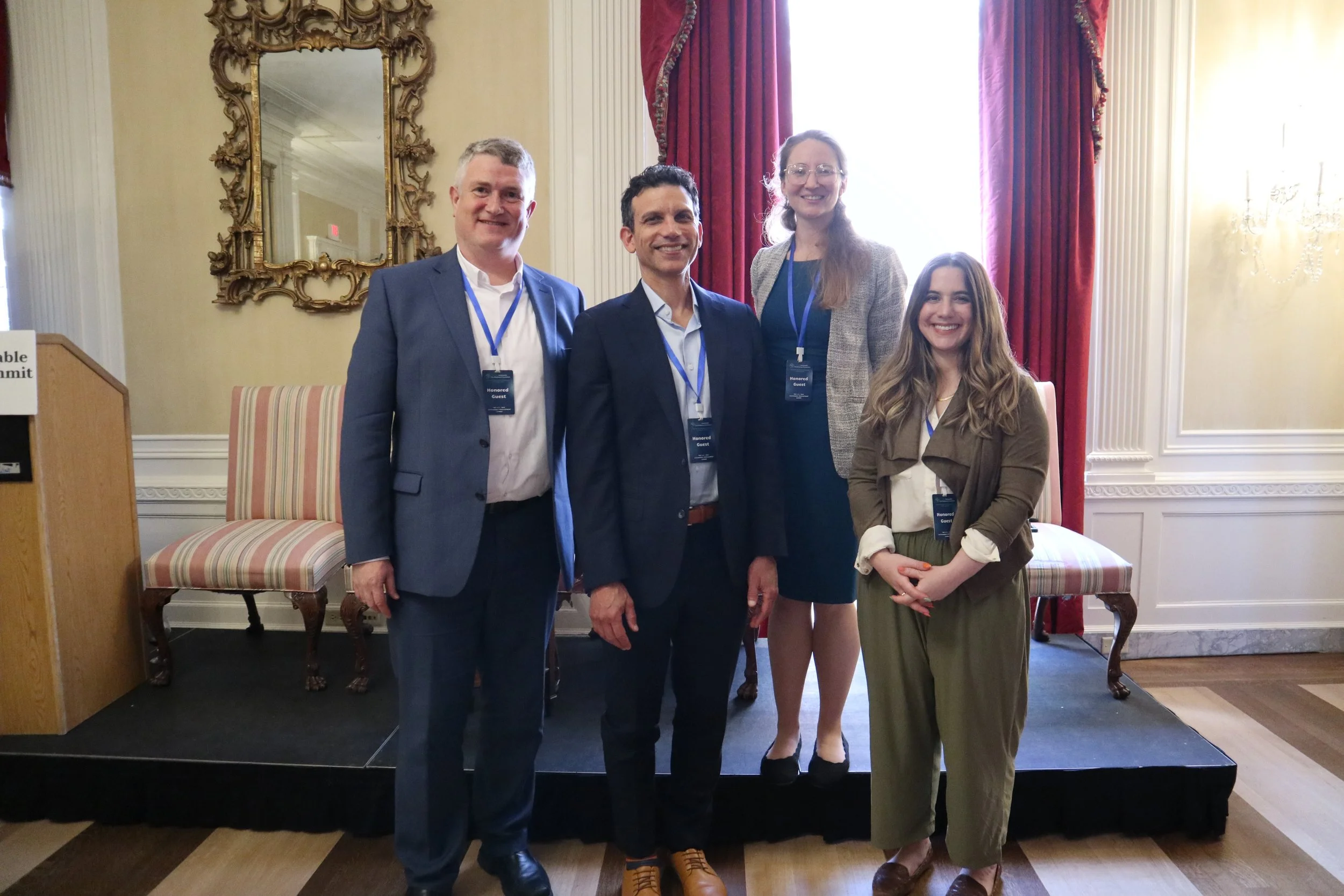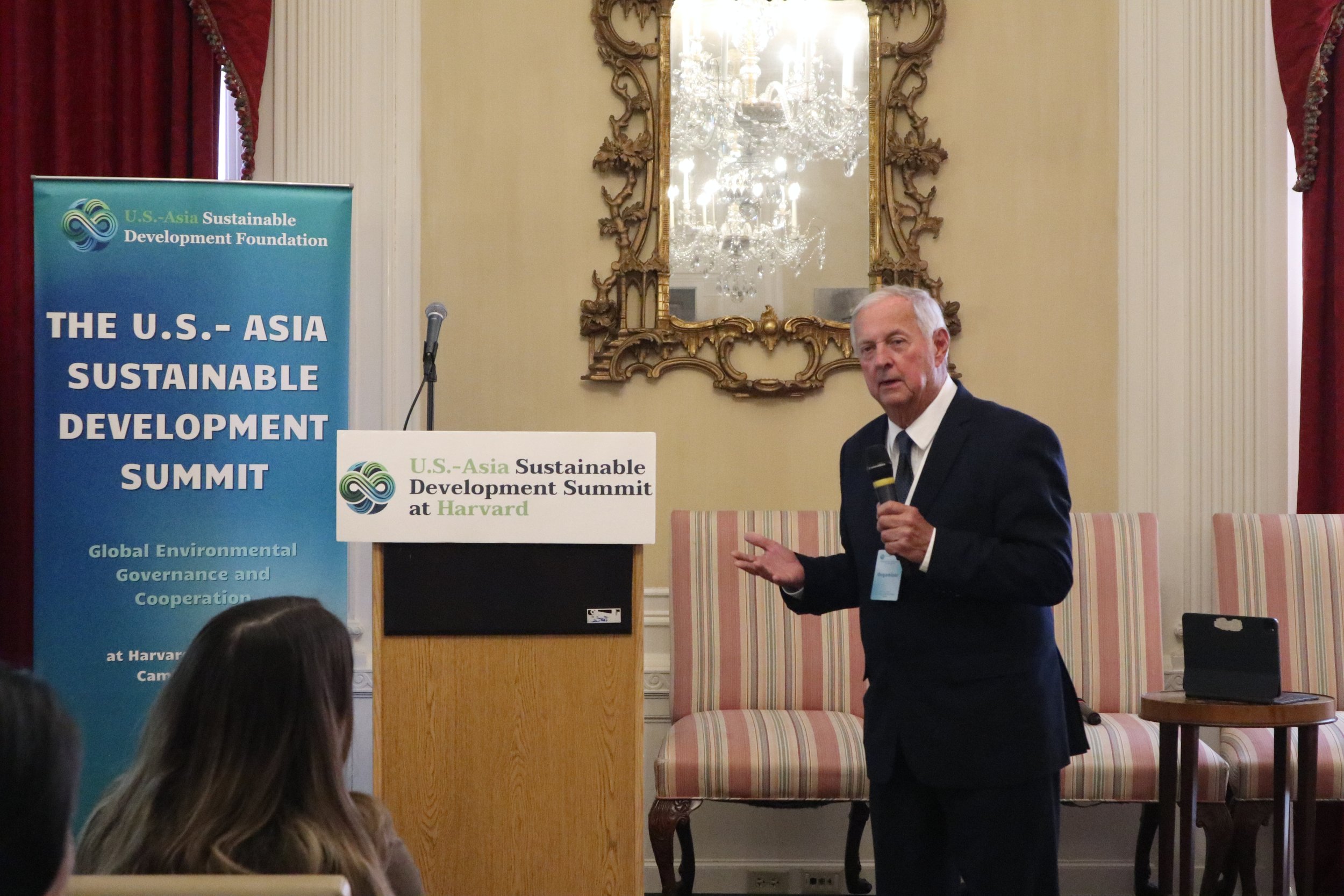Second U.S.-Asia Sustainable Development Summit Tackles Global Environmental Governance at Harvard
CAMBRIDGE, MA [April 27, 2025] – Amidst escalating global environmental challenges and geopolitical tensions, the Second U.S.-Asia Sustainable Development Summit convened successfully at Harvard University's Loeb House on April 24, 2025. Under the theme "Global Environmental Governance and Cooperation," the summit brought together influential policymakers, academic leaders, and industry innovators from across the U.S. and Asia to forge pathways for collaborative action on climate change and sustainable development.
Opening Ceremony Highlights Urgency and Opportunity
Jerry Huang, Founder of the U.S.-Asia Sustainable Development Foundation (UASDF), opened the summit by underscoring the critical need for international cooperation in a time of rising isolationism. He noted that with the U.S. and Asia jointly responsible for a majority of global emissions and economic output, their leadership is indispensable. Huang emphasized the summit's role as a platform for action, not just symbolism, aiming to bridge policy gaps, foster green partnerships, finance a just transition, and devise sustainable growth strategies.
Jeevan Rama Priya, Executive Director of the Massachusetts Office of International Trade and Investment, welcomed attendees on behalf of Governor Healy, highlighting Massachusetts' commitment to achieving net-zero emissions by 2050 and its position as a leading global climate tech hub attracting international collaboration.
Keynote speaker Craig Allen, former President of the U.S.-China Business Council and now with the Cohen Group, provided a candid outlook on U.S.-China relations, stressing that despite current political headwinds and policy uncertainties, collaboration on climate change is essential and continues robustly at the private sector, academic, and subnational levels. He referenced the ongoing importance of agreements like the Sunnylands accord.
Other opening speakers included Santiago Creuheras from the Harvard Weatherhead Center for International Affairs, who discussed the complexities of global environmental governance and the need for reformed multilateralism, and Kevin Knobloch, President of Knoblok Energy and former DOE Chief of Staff, who reflected on past U.S.-Asia energy collaborations and the importance of subnational and private sector resilience amidst federal policy shifts. A message from U.S. Senator Elizabeth Warren supporting the summit's goals was also shared.
Summit Panels Explore Key Collaboration Areas
The summit's agenda featured four panels delving into critical aspects of U.S.-Asia sustainable development:
The first panel, "Bridging Policy Gaps," focused on climate and energy collaboration challenges and opportunities between the U.S. and Asia. Discussions covered multilateral, bilateral, and subnational approaches, alongside navigating trade tensions and the impacts of recent U.S. political shifts on international cooperation.
The "Accelerating Green Growth" panel explored strategies for fostering cross-border climate industry partnerships. It examined investment trends in clean tech, market entry challenges for companies expanding globally, and the role of innovation in areas such as hydrogen and the decarbonization of chemical manufacturing.
"Financing the Future" addressed sustainable investments and green finance mechanisms. Panelists tackled the interplay between prioritizing an orderly energy transition versus managing market disruption, the potential for leveraging capital markets for sustainability, assessing climate risk in finance, and questions surrounding the equitable sharing of climate action costs.
Finally, the "International Sustainable Growth Strategies" panel discussed how businesses and nations can navigate global challenges through innovation and strategic policy support. Key themes included the importance of strategic communications in building trust and support, managing geopolitical risks effectively, and ensuring the credibility of initiatives like carbon markets.
A special presentation showcased the successful collaboration between JA Solar and Professor Robert Kaplan of Harvard Business School on implementing E-liability carbon accounting, measuring real-time emissions across JA Solar's supply chain – a project born from the previous year's summit.
Looking Ahead: A Call for Continued Collaboration
Closing remarks reiterated the summit's core message: in the face of global crises, collaboration must prevail over confrontation. Despite current challenges and political uncertainties, the commitment to sustainable development and U.S.-Asia partnership remains strong, driven by economic realities, subnational actors, academic institutions, and the private sector. Jerry Huang thanked sponsors like the Shanghai Zhangjiang Boston Enterprise Park and reaffirmed UASDF's dedication to fostering dialogue and action, viewing the effort as a marathon, not a sprint.
The summit successfully fostered dialogue and highlighted tangible collaborations, reinforcing the necessity of continued international cooperation to advance the global sustainable development agenda.
About U.S.-Asia Sustainable Development Foundation (UASDF) The U.S.-Asia Sustainable Development Foundation (UASDF) is committed to promoting youth, academic, and business collaboration in sustainable development between the US and Asia.

